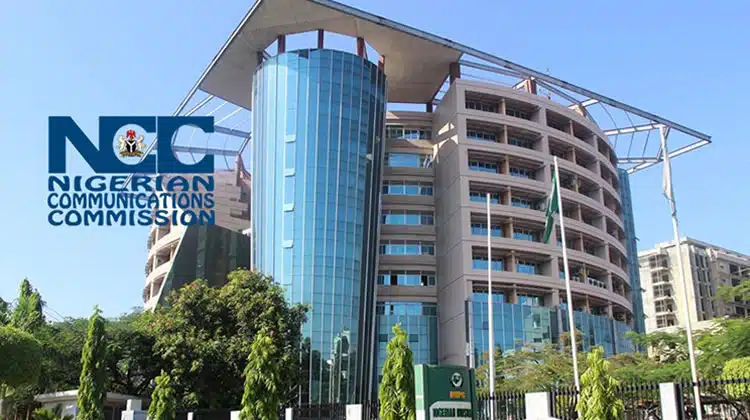Yá’át’ééh,
Victoria from Techpoint here,
Here’s what I’ve got for you today:
- South African e-hailing drivers plan first nationwide strike
- Why most African countries don’t even rank on AI readiness
- MTN drops $16.5M to boost Gauteng network
South African e-hailing drivers pladn first nationwide strike

South African e-hailing drivers are gearing up for what could be the first-ever nationwide strike in the industry. After years of fragmented protests and little to no change, drivers are finally joining forces under the National E-hailing Federation of South Africa (NEFSA) to demand fairer treatment from companies like Uber and Bolt, per Technext.
The national strike, which NEFSA says will last a week, is a direct response to years of low pay, unsafe working conditions, and what drivers call the unchecked power of app companies. The federation says enough is enough; drivers are tired of being exploited while foreign platforms continue to rake in profits.
“Decent pay, health and safety, transparency in how algorithms operate, and compensation for injuries or death; these are basic rights,” said NEFSA’s Secretary General, Omar Parker. He added that many of these demands have been echoed across Africa and recently featured in the International Alliance of App-based Transport Workers (IAATW) International Labour Organization (ILO) sub-Saharan Africa report.
One of the most frustrating issues for drivers is deactivation without warning. Many have been kicked off the platforms without explanation or a chance to defend themselves. On top of that, NEFSA has raised concerns about a black market for operating licences and a lack of social protection for drivers.
Protests have broken out across provinces over the years, from Gauteng to the Western Cape, but they’ve always been too fragmented to create lasting impact. That’s what this strike is trying to change. NEFSA wants all drivers, no matter their group or province, to unite and send a clear message.
The group is calling on all drivers and associations, even those outside its membership, to back the strike and reclaim their power. “We’re not going to watch foreign companies trample on South African workers while the government does nothing,” said Parker. “This is about standing up together and fighting for our share in the profits we help generate.”

Victoria Fakiya – Senior Writer
Techpoint Digest
Stop struggling to find your tech career path
Discover in-demand tech skills and build a standout portfolio in this FREE 5-day email course
Why most African countries don’t even rank on AI readiness

Let’s be real. Most African countries are nowhere near ready for artificial intelligence. According to the Global AI Index, over 80% of them don’t even rank. The few that do — Egypt, Nigeria, and Kenya — are considered nascent, while Morocco, South Africa, and Tunisia are just waking up. Meanwhile, the US and China are lightyears ahead as the only true “power players” in the game.
So, why does this matter? Because AI isn’t some futuristic fantasy; it’s already reshaping jobs, economies, and how societies function. In fact, Anthropic CEO Dario Amodei recently warned that early-career roles in admin, tech, and management are at serious risk of disappearing. If we’re not prepared, we won’t just be behind; we’ll be crushed.
A few countries, like Rwanda and Ghana, are drafting AI strategies. But even that progress is shaky. One big issue? African countries often rely on foreign frameworks when making laws and policies. They’re not just borrowing ideas; they’re copy-pasting without adjusting for local realities. And this isn’t new. Ugandan economist Fred Muhumuza said it plainly: policies built for the West don’t work for economies where the informal sector dominates.
Take Nigeria’s 2019 data privacy law, the Nigeria Data Protection Regulation (NDPR). It borrows heavily from the EU’s General Data Protection Regulation (GDPR), down to the legal language. And at first, that seemed smart. It brought structure, sparked awareness, and even created jobs for data protection consultants. But here’s the kicker: unlike the GDPR, the NDPR skips over some really important stuff like what happens when data is breached or how kids’ data is handled.
This shows the cracks. Copying global best practices isn’t bad, especially when homegrown expertise is still limited. But what’s missing is localisation. And worse, people on the ground, the very communities these policies are supposed to protect, often aren’t part of the process. That’s the red flag Mozilla’s Kiito Shilongo is raising: it’s not just what we’re copying; it’s who we’re excluding.
So, where are Africa’s AI policies? What about the cracks in the ones we already have? Find all these answers and more in Bolu’s latest for Techpoint Africa.
MTN drops $16.5M to boost Gauteng network

MTN South Africa is pouring big money into Gauteng’s network to the tune of R300 million (about $16.5 million) as part of its massive R4.5 billion ($247 million) nationwide plan to boost connectivity across the country. The telecom giant says this upgrade will improve everything from coverage to capacity in the province.
Why Gauteng? Gauteng is South Africa’s most populous province, so this is a major win for the country’s busiest economic hub. With millions living, working, and running businesses there, better connectivity means faster internet, stronger 5G signals, and way fewer dropped calls. That’s a big deal for everyone from everyday users and entrepreneurs to schools and hospitals that depend on digital tech to get things done.
A chunk of that Gauteng budget will go towards building new base stations, upgrading over 70 existing sites, and generally making the network stronger, faster, and more reliable. If you’ve ever struggled with signal drops or sluggish speeds, MTN says help is on the way.
The upgrades are set to include next-gen features like better LTE performance and wider 5G rollout all expected to be completed by the end of 2025. MTN believes this will make a huge difference for everyday users, businesses, and communities trying to stay connected in a digital-first world.
Machawe Dlamini, MTN’s Gauteng operations lead, says the work will also improve energy backup systems and site security. Think longer-lasting batteries and more generators. Yeah, things that matter in a country still grappling with load-shedding.
Beyond the technical stuff, MTN says this investment is part of its bigger “Ambition 2025” plan, which is all about closing the digital divide and bringing more South Africans online, especially for education, healthcare, and business access.
This Gauteng investment comes just weeks after MTN announced it would spend R480 million ($26.4 million) in KwaZulu-Natal, a coastal South African province, in 2025. And it’s not just talk; MTN continues to rank as the top network in South Africa, with the latest speed tests showing an impressive 92.66Mbps average download speed.
In case you missed it
- Ethiopia joins digital payment race with first domestic credit card
- Transsion takes Africa-grown phone empire to Hong Kong in new IPO bid
What I’m watching
- Your mind is all you have. What if AI starts thinking for you?
- I’ll Probably Lose My Job to AI. Here’s Why That’s OK | Megan J. McArdle | TED
Opportunities
- Spiro is hiring a Java backend engineer. Apply here.
- M-KOPA is recruiting a Senior Backend Engineer. Apply here.
- Mastercard Foundation is hiring a Lead, Associate Engagement and Services. Apply here.
- Jumia is hiring a Chinese-speaking key account manager. Apply here.
- AltSchool Africa is looking for a Program Associate. Apply here.
- MTN Nigeria is looking for a Manager (Public Sector, Southwest region). Apply here.
- Building a startup can feel isolating, but with Equity Merchants CommunityConnect, you can network with fellow founders, experts, and investors, gaining valuable insights and exclusive resources to help you grow your business. Click here to join.
- Help us make Techpoint better for you! Your feedback shapes what comes next (your responses may potentially save my job. A bit dramatic, but still). It will only take 30 seconds to tell us what works and what doesn’t. Fill it here.
- To pitch your startup or product to a live audience, check out this link.
- Have any fresh products you’d like us to start selling? Check out this link here.
- Follow Techpoint Africa’s WhatsApp channel to stay on top of the latest trends and news in the African tech space here.
Have a lovely Tuesday!
Victoria Fakiya for Techpoint Africa.








